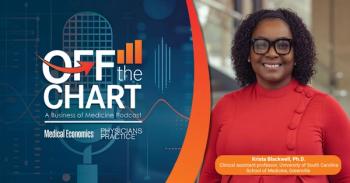
Experiencing the Healthcare System as a Patient
No one understands what it is to be a patient with a life-changing condition, dependent on the system, until he is.
This is my 40th year in healthcare. I am not a clinician, but after all of those years in administration, even in the C-Suite where most of my career has been spent, one gains at least a basic understanding of the science.
Like everyone, I have had episodic experiences and even a few acute ones from vehicle crashes. They are all very straightforward. Take this, wear this, inject this, remove this and the body will heal itself for the most part, and life goes on. Bumps in the road. Inconveniences.
Then, something happens that is not a bump or inconvenience. It is a crash, unavoidable, confusing, inscrutable. There is no defined cause, no straightforward solution. The clinical explanations are not linear or conclusive. This is the point where medicine becomes a process, and where my story begins.
It started with a hip click. No big deal. No pain. I looked it up and, although I work with physicians every day, it wasn’t even worth a mention. Don’t be a baby.
And, it went away. A few weeks later, someone noticed a change in my gait. A little irritation or inflammation. Try some NSAIDs. I knew that, too, and did my part.
Then, the aching came, growing more acute by the day. Time for a visit, but not a regular one. Mine are VIP-type visits. No waiting, come right in. X-rays, steroid injections, a little arthritis and bursitis. It happens to aging athletes, particularly competitive golfers and cyclers with back problems. That takes its eventual toll on hips.
And, I learned, it isn’t so much the waiting room, although sitting there in pain is particularly unpleasant and destructive to the most positive outlook. It is the confusion, the uncertainty, the realization that nature is taking its course, and you are just along for the ride, and it is headed in a bad direction.
Being surrounded by people in this situation every day of our professional lives leaves us divorced from the consequences of each of the individuals that we treat, and the realization that this is all new to them.
We separate ourselves from their newfound, acute awareness that all of those everyday things that we all take for granted - getting dressed, sitting, walking, etc. - are not just difficult, they are a punishing challenge collecting a toll in stabbing pain with every wrong move. NSAIDS graduate to opiates, the light ones progressing in potency until even they don’t work very well while the process of interventional diagnostics takes its course. Maybe this one works, maybe it means surgery, maybe worse, and all of it shines a bright light on our mortality and fragility.
In my case, and I suspect in virtually every case, in the center of this process, moving up the specialty ladder from primary-care physician to physiologist to surgeon, it is not the physician who will eventually fix me or fail me that is the rock upon which my future is anchored; it is the one who cared enough to take a moment to call me to see how I was doing and to answer any questions. He is the one who called me this morning to explain that my condition has exceeded what he can do in his training, but explained what was going on, and committed to be my clinical eyes and ears.
The center, and by far most important aspect of my patient experience, is that person who cares what happens to me. And, I feel better already.
Newsletter
Optimize your practice with the Physicians Practice newsletter, offering management pearls, leadership tips, and business strategies tailored for practice administrators and physicians of any specialty.









